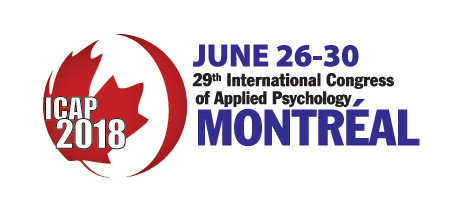2018 Pre-Congress Workshop 11: Between Temperament and Mental Disorders: Assessing the Continuum
Jun 25, 2018 01:00PM
Palais des congrès de Montréal

| Presented by: | Irina Trofimova, William Sulis |
| Sponsored by: | Clinical Neuropsychology |
| Continuing Education Credits: | 3.25 |
| Notes: |
- |
| Cost: |
CPA/IAAP Members: $195.00 + GST + QST Non-Members: $275.00 + GST + QST
Click here to download the country list |
| Duration: | Half Day (13:00 – 16:30) |
| Target Audience: | Clinical, differential, personality, organizational and educational psychologists; social workers; psychotherapists |
| Skill/Difficulty Level: | Intermediate Level |
|
Workshop Description: Temperament and mental illnesses are considered to be varying degrees of the same continuum of imbalance in the neurochemical regulation of behavior. This intermediate workshop presents a condensed and comprehensive review of the main models of temperament and their convergence with findings in psychophysiology and psychopathology. Participants will learn a 12-components framework that summarizes specialization between neurotransmitter systems underlying both temperament and mental disorders. Participants will be offered an introduction to and practice with a screening temperament test that has been validated over the past 25 years. Examples of temperament profiles in patients with mental disorders will be reviewed based on clinical studies. Algorithms for using temperament profiles in choosing psychotherapy approaches and the relationships between psychopathology, psychophysiology, and temperament will be discussed in a perspective of classification of mental disorders and trait theories. |
|
|
Learning Outcomes:
|
|
